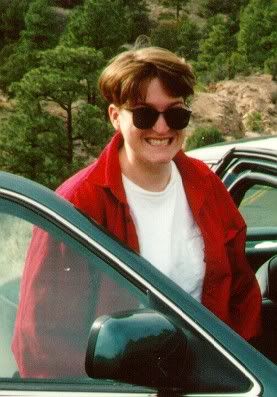This is our inaugural edition, so we're still working out our format.
The Segregation of the Senses by WR Weinstein.
Julie: I think the poet had an ending line and wanted to get to it. Unfortunately, the poem ends up treading water until then. It doesn't have any emotional pull for me. Flat language, blanket statements, few images. Not my cup of tea.
Gabriel: The language is flat and the linebreaks largely arbitrary. The disjointedness of the language is ineffective because it is not a series of fractures related to the segregation of the senses, as the title might suggest, but instead is merely random.
In terms of structure, there was little to write home about. Why “neuroscientist” (Line 4) deserves its own line, for instance, is simply because the linebreak is being used as comma and to force a 5 line strophe. The gimmickry used is uninspired and doesn’t really go anywhere. The ana/epiphoric sense listing in the second strophe, for example, serves no function and is punctuated by a lame joke in Line 9. This gesture winds up emphasizing the absence of touch and taste, the two senses that the poem problematically neglects.
The poem has a sexual/political agenda that is both obvious and mundane. The poem brings nothing new to the table, nor does it do anything particularly interesting by poking at, with purposeful selectivity, tired discussions that are not adequately explored.
In the end, the work mistakes its own perception for profundity and hopes that presenting the language in the form of “being a poem” will somehow help the reader to forgive the fact that nothing significant is said.
---------
From Epitaphs by Abraham Sutzkever, trans. by Jacqueline Osherow.Julie: It's hard to say if the distance in the poem is from the original or from the translation. In a way, it works as something "written on a salt of a railway car" which is a pretty distant sort of communication. The poem ends up slight and bland, but with an overarching heaviness. The biography at the bottom was more affecting.
Gabriel: Firstly, let me say that I am at best ambivalent about the translator’s note. I think it is interesting biographical material, but set up as a companion piece to be read in reflection immediate to the poem felt like emotional extortion. Ah well, moving on.
I think that the language maintains a pathos that is amenable to the tone throughout. I have mixed feelings about the use of the dash, I think that it is an interruption that is sometimes effective and sometimes stumbling. On the whole I thought that the language couldn’t quite decide if it wanted to be simple or sagacious and so tried to do a bit of both.
I felt the openness of the conclusion was interesting. Structurally it behaves as a conclusion should and creates a “closed” sort of feeling, but the avenues for interpretation are really quite wide open.
---------
Cancer by Eileen R Tabios.Julie: I find myself definitely not wanting to know how nipples might curdle. I have a weird dislike of direct quotation in poetry. It always drags me out of the moment. Can't explain. Shouldn't try. I find myself flailing a bit for something to say about this poem.
Gabriel: How to tackle this? Well, the sexual politics are problematic to say the least, and the language brings this to a point of crisis frequently throughout the poem. Consider for example the subtext of “anxious thighs” (L 5), which suggests both expectation/longing and also fear.
The male sexuality in the poem is rapacious. The violence of the male gaze in the third strophe was particularly troubling, as well as the themes of domination, objectification, and rape that run through the poem. The male sexuality in the poem is literally murderous. Clearly destructive throughout, as seen by desire to “tear” the female mouth, and every interaction which involves the male identity, in lines 18-20 the rationale behind the title declares itself. L 20 “as if life-generating air still flowed, between our bodies” which is to say that life-generating air does not flow. The male identity pulls the speaker into the absence of air, ergo, murderous. The male sexuality in the poem wishes to possess sexually by domination and violence, and in the act of possession destroy the thing (let's not mistake the objectification here) possessed.
What struck me most about this poem, even more than its pornographic nature, was the profound naïveté of the speaker. Whether it borders on or goes well past idiocy is difficult to say. But the idiocy of the speaker is required by the poem, for the most part. In order for the horror of the poem to be communicated effectively, the speaker needs to not only dramatically fail in the role of person, but also romanticize her own failure of personhood. This comes through in passages like the “Master, you always let me be so innocent / I could offer fearlessly, ‘Whatever You Want.’ ” (L 21 - 22) demonstrating how the speaker perverts the meaning of “innocence” to apply to that which is passively, perpetually, and most disquieting appropriately/deservedly violated.
The speaker is never the sole possessor of action in the poem. The only instance where she could be said to be an instigator in the poem is in the final strophe, which presents the apotheosis of the male aggressor (which has a whole mess of implications on its own), however the speaker’s explicit destruction subverts any agency her action might have afforded her.
At first I had wanted the language to be tightened up in some places, but on further consideration I wonder if the campiness of the romanticized language communicates the abjectness of the speaker more completely than more condensed diction ever could.

